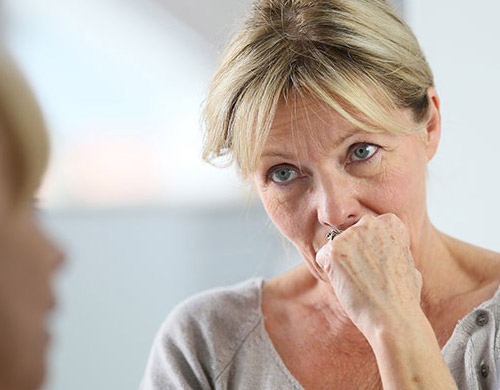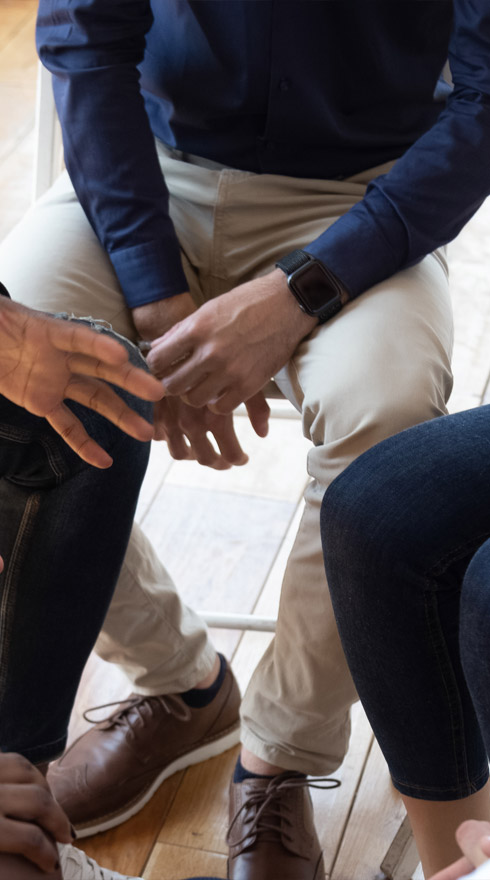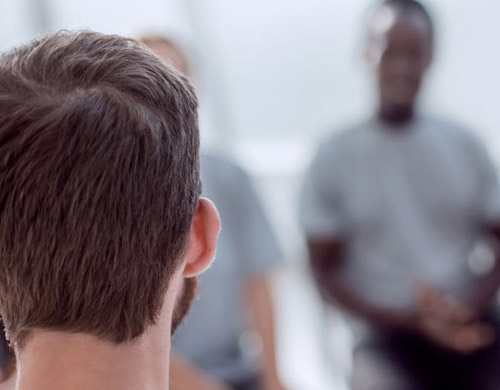It can be so lonely when you or someone you love has a problem with drug or alcohol dependence, that you don’t know how to help. You can treat addiction even though it is a disease, and long term recovery is likely through professional rehab intervention programs.
Learn more about how integrated rehabilitation services can assist yourself or someone you love in beginning and maintaining recovery from substance dependence.
What is Addiction Rehab (Rehabilitation)?
Addiction ‘rehabilitation’ is a holistic treatment plan that introduces both therapy and medical interventions to treat legal, illegal and recreational substance dependencies. Addiction Rehab is best when it is tailored to your individual needs and incorporates a medically-supervised detox, inpatient and outpatient programs, as well as relapse prevention techniques.

Facts & Statistics about Addiction in Riverside County
Prevalence of Substance Use Disorder, by Drug Type
(IN THOUSANDS)
- 2,7578.5%Any Substance
- 2,0886.4%Alcohol
- 1,0683.3%Ilicit Drugs
- 2060.6%Pain Medication
Drug- and Alcohol-Induced Deaths by Age Group, California, 2016
- Alcohol-Induced
- Drug-Induced
- 18 to 250.5
- 9.6
- 26 to 354.3
- 13.9
- 36 to 6424.2
- 22.9
- 65+23.7
- 9.4
Drug Use, by Selected Type and Age Group California, 2015 to 2016
- 12 to 17
- 18 to 25
- 26+
- Marijuana*13.2%
- 34.0%
- 13.5%
- Misuse of Pain Medications3.5%
- 8.0%
- 4.3%
- Cocaine0.8%
- 7.2%
- 1.8%
- Heroin0%
- 0.4%
- 0.2%
What are the treatment options available in Riverside County?
Integrated rehab is typically the most effective manner in which to deal with the root issues of alcohol and drug use disorders. While treating the causes of dependence is necessary, you also should learn coping strategies to address the issues that lead to your drug or alcohol dependence.

Private Residential Programs
A residential treatment program allows you to live at the treatment center and receive all your treatment at the property. It is extremely beneficial to have access to 24/7 care and treatment access.
By displacing yourself from your home environment and residing at the treatment centre you can safeguard yourself from the stressors that contributed to your drug or alcohol dependence. By choosing to stay in a controlled and supportive environement, you have a greater chance of completing your treatment program while avoiding relapse and its associated dangers. If you struggle with a serious substance dependency, or you suffer from a dual diagnosis or co-occurring disorder, a residential rehab program is advised.
We know that the first year of recovery are usually challenging and after a residential rehab program, you must remain focused to maintain long term recovery. Once you have finished your residential addiction treatment program you must focus on becoming more independent and set life goals and new challenges.
Do You Need Help?
Our addiction advisers are here to help you.

Sober Living Programs
Sober living programs help individuals in recovery develop further control over their lives, with support and some guidance. These programs typically have:
- A house manager to check in with you on a daily basis
- Develop boundaries for your behavior in recovery
- Support and new friendships from those who are having similar challenges to you.
Outpatient Programs
The flexibility of outpatient programs means that you do not have to stop work commitments or family commitments, as you can come to the treatment facility and have regular treatments in your own time.
Outpatient programs usually offer:
- Education around substance use disorders
- Therapy and counseling in the form of group therapy or one-to-one interventions – The length of any outpatient treatment is unique to your circumstances and lasts between three months to more than a year.
Detox Only Programs
The first steps of a treatment program is detoxification, which eliminates all traces of substances from your body and begins healing your physical dependency on it. As your body returns to normal function without substances in your system, you typically experience withdrawal symptoms.
This process of detoxification starts the rehab phase, which will continue as you overcome the reasons for your addiction so that you can avoid repeating these negative patterns long-term. You should expect to feel some cravings and withdrawal symptoms for some time after your detox phase has ended. Learning vital skills can assist you to limit your risk of relapse as you adapt to your new life.
Paying for Private Treatment
If you wish to to opt for private rehab, you will need to fund it yourself or make a claim via your healthcare policy. Most insurance companies will contribute to at least part of the costs associated with addiction rehab, such as a medically-supervised detox, rehab therapy and medical supplies, as well as aftercare support. Your provider and their terms will determine the amount of cover you can claim for.
We advise that you confirm how much you can claim prior to enrolling for treatment. Click on our Verify Your Insurance page – https://www.unitedrecoveryca.com/verify-your-insurance/ – to find out about the cover you qualify for.
Clients will have to pay for the cost of rehab if they do not claim via their insurance policy. A number of treatment facilities offer payment plans to clients so that cost is not a barrier to treatment.
State Funded Programs
State-funded rehab programs were created to assist individuals who do not have the financial means to deal with an alcohol or substance dependence. Via state funding and Medicaid, these programs may help your recovery with:
- Medical assessment and detox if required
- Rehab treatment and extended support
State-funded rehab programs are intended to help people on tight budgets or those with no health insurance. For you to apply you need:
- Proof of residence
- Proof of earnings
- Your medical records and details about your drug or alcohol problems
- Proof that you reside in the US legally
Visit https://www.grants.gov/ for more details about the application process. You can also download this file – https://www.samhsa.gov/sites/default/files/single-state-agencies-directory-08232019.pdf – for your state agency’s direct contact details.

The following state-funded addiction rehab programs are available in Riverside:
MFI Recovery Center A Womens Place
4295 Brockton Avenue, Riverside, CA 92501
951-341-3786 x1299
https://www.mfirecovery.com/Whiteside Manor Mens Program
2743 Orange Street, Riverside, CA 92501
951-788-9515 x101
https://www.whitesidemanor.com/Pacific Grove Hospital
5900 Brockton Avenue, Riverside, CA 92506
800-992-0901
https://www.pacificgrovehospital.com/
Maintaining Addiction Recovery in Riverside
Leaving the comfort of residential rehab and returning home can be hard for people in the early stages of recovery. When you were in rehab the environment was controlled and you had support from professionals. After leaving the rehab center you may encounter unanticipated challenges that you are not prepared for. Long term sobriety is more difficult to maintain when you have had a severe dependency and do not have social support when you leave rehab. Relapse can happen if you don’t have the appropriate aftercare or support to guide you into your new future.
The following AA/NA meetings are available in Riverside:
AA - 12 X 12 Cypress Avenue
Step Meeting: 7620 Cypress Avenue, Riverside, CA, 92501
Monday: 8:00 pm – 9:00 pm
https://alcoholicsanonymous.com/Morning Fix
Open, Just for Today, Smoking Permitted, Timer,
Wheelchair, Outside and No Cell Phones:
3891 Ridge Road, Riverside, Ca, 92501
Sunday: 7:00 am – 8:00 am
https://www.eietodayna.org/meetings/We Do Recover
Open, Children under Supervision, Discussion,
Smoking Permitted, Wheelchair, Children Welcome and Outside:
2992 Mission Inn Avenue, Riverside, CA, 92507
Sunday: 6:30 pm – 7:30 pm
https://www.eietodayna.org/meetings/
Aftercare & Alumni Programs
By participating in an aftercare program you get extended rehab support when you go home. Because life doesn’t always work out how we want it to, and 60% of individuals may relapse on completing rehab, staying active in an aftercare program is an important support for you when times feel difficult.
As you approach the end of your treatment program, counselors will work with you to identify therapies and services that will help you with your long-term recovery, and we will create aftercare packages to support you. After completing your rehabilitation program you will become eligible to join an alumni community program so you can stay close to staff and ex-clients. You will enjoy access to special events and receive support and encouragement from other people who are in recovery long-term. You might also like to return the favor by showing support towards other members.
Support Groups (Fellowship Meetings)

Support groups encourage active recovery because they understand the key role that social structures play in supporting addiction recovery. To maintain addiction recovery, can get long-term recovery support if you participate in groups like Narcotics Anonymous or Alcoholics Anonymous and attend any 12-step meetings. At local meetings, you can share and learn from other people’s journeys in recovery. Many people in recovery attend local meetings to assist them in the early and later stages of addiction recovery. Support groups provide them with vital tools to maintain sobriety, allowing them to be accountable for their life.
Support for Families & Children Affected by Addiction

Each family member is hurt, to different degrees, by addiction issues. The individual with the addiction issues needs support, but other members of the family need assistance too. Family support groups teach you effective coping strategies for your own life and allow you to offer greater support to the loved one who has the addiction.
Receive help and support for the Family with the below support groups:
- Parents of Addicted Loved Ones
- SMART Recovery Family & Friends
- NAMI Family Support Groups
- Al-Anon
- Families Anonymous
- Alateen
- Nar-Anon









